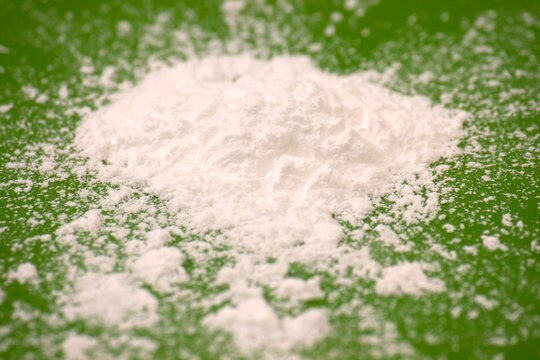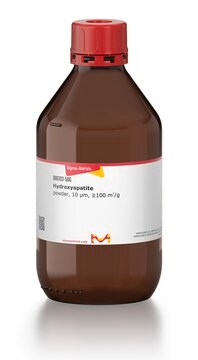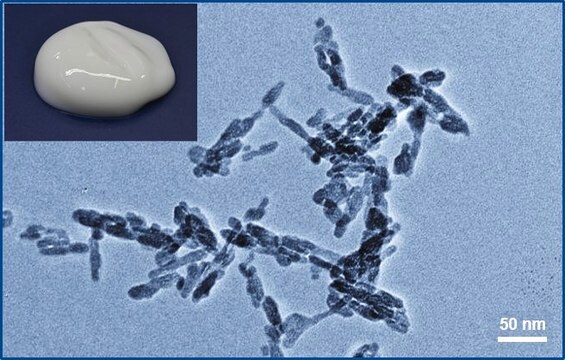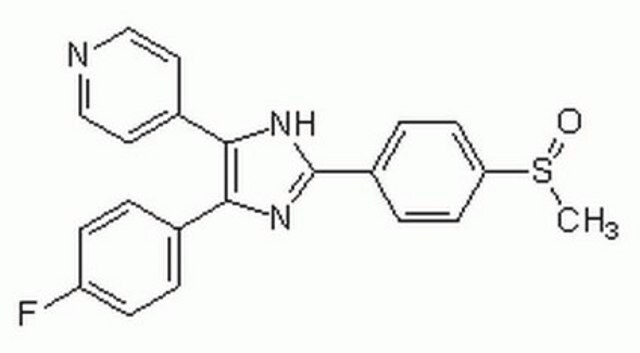677418
Hydroxyapatite
nanopowder, <200 nm particle size (BET), ≥97%, synthetic
Synonym(s):
Calcium phosphate tribasic, Calcium hydroxyphosphate, HAp, Hydroxylapatite, Tribasic calcium phosphate
About This Item
Recommended Products
Quality Level
Assay
≥97%
form
nanopowder
solid
surface area
>9.4 m2/g
particle size
<200 nm (BET)
mp
1100 °C (lit.)
SMILES string
[Ca++].[Ca++].[Ca++].[Ca++].O[Ca+].[O-]P([O-])([O-])=O.[O-]P([O-])([O-])=O.[O-]P([O-])([O-])=O
InChI
1S/5Ca.3H3O4P.H2O/c;;;;;3*1-5(2,3)4;/h;;;;;3*(H3,1,2,3,4);1H2/q5*+2;;;;/p-10
InChI key
XYJRXVWERLGGKC-UHFFFAOYSA-D
Looking for similar products? Visit Product Comparison Guide
General description
Application
Poly (sodium 4-styrene sulfonate)-modified hydroxyapatite nanoparticles can be used as a drug carrier for vancomycin. Hydroxyapatite nanoparticles control the release of antibiotics after the implantation of a scaffold in the body.
Porous hydroxyapatite microspheres exhibit a high adsorptive capacity for heavy metals and can be used for the treatment of heavy metal contaminated water.
Features and Benefits
- Bioactive and biocompatible
- Good mechanical strength
- Porous structure
- Osteoconductive and osteointegrative properties
Legal Information
Storage Class Code
13 - Non Combustible Solids
WGK
WGK 1
Flash Point(F)
Not applicable
Flash Point(C)
Not applicable
Personal Protective Equipment
Choose from one of the most recent versions:
Already Own This Product?
Find documentation for the products that you have recently purchased in the Document Library.
Customers Also Viewed
Articles
Nanomaterials for Biomedical Applications
Innovation in dental restorative materials is driven by the need for biocompatible and natural-appearing restoration alternatives. Conventional dental materials like amalgam and composite resins have inherent disadvantages.
Our team of scientists has experience in all areas of research including Life Science, Material Science, Chemical Synthesis, Chromatography, Analytical and many others.
Contact Technical Service







